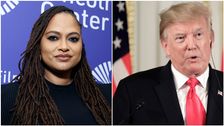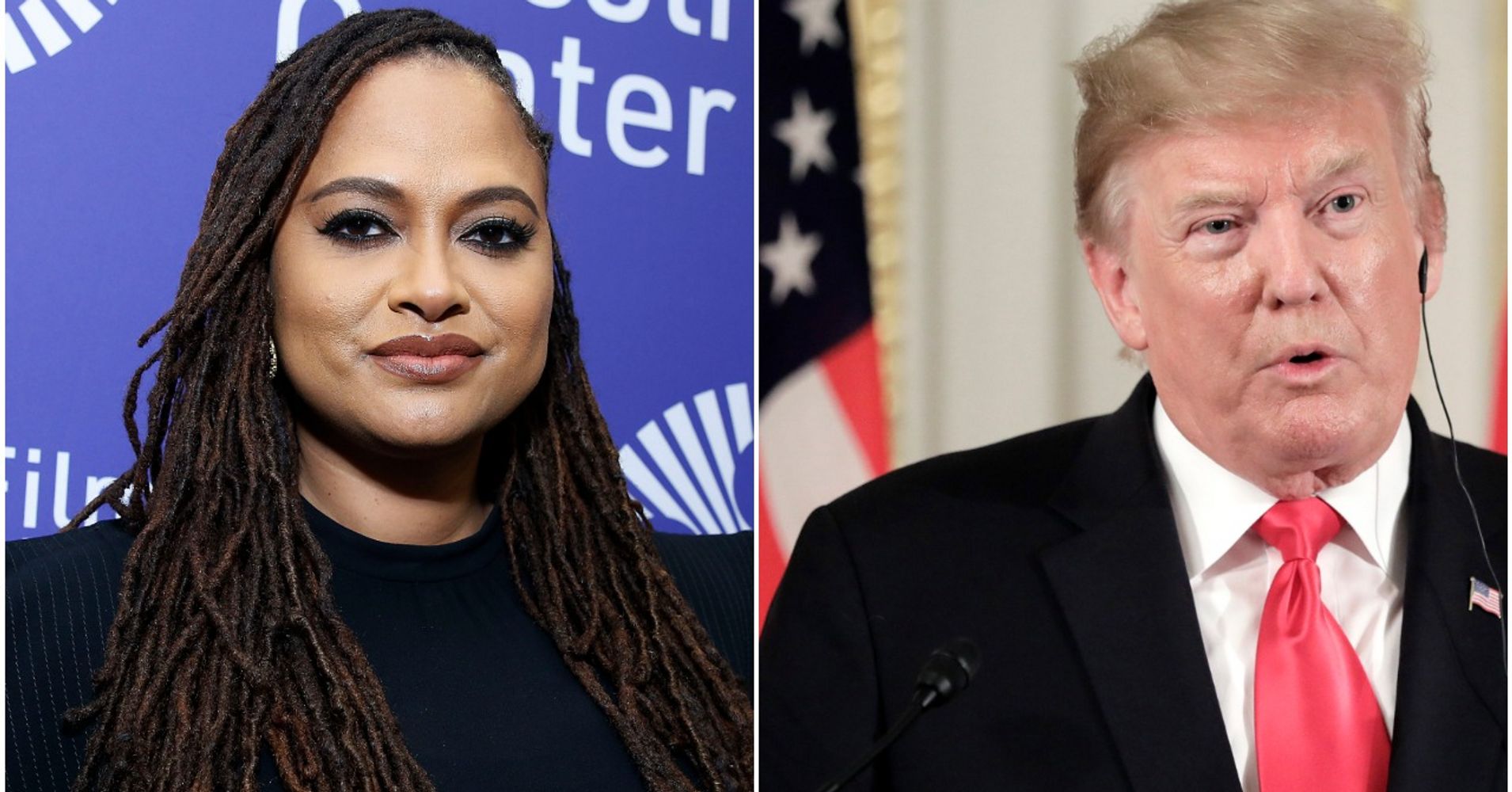[ad_1]

Ava DuVernay criticized President Donald Trump on Monday for his “violent rhetoric” surrounding “tough on crime” measures in the ’90s that have disproportionately affected black communities.
The director was responding to a tweet from Trump criticizing 2020 presidential candidates who had any association with the 1994 Crime Bill, which former President Bill Clinton has since apologized for signing into law. Trump wrote that those candidates “will not have a chance of being elected.”
“The story people know is the lie that you told them,” DuVernay replied to Trump. “Your violent rhetoric fed tensions that led to the bill you pretend to distant yourself from.”
The director also tweeted a clip from her new Netflix miniseries, “When They See Us,” which follows the story of five black and Latino teenagers, widely known as the Central Park Five, who were wrongly convicted of brutally raping a 28-year-old white jogger in 1989 in New York City.
DuVernay’s clip shows real-life footage of a then-real estate developer Trump telling NBC’s Bryant Gumbel in 1989 that he would “love to be a well-educated black,” suggesting he thought they had advantages in society.
Then Marsha Stephanie Blake, who in the miniseries portrays Linda McCray, the mother of one of the accused teens, references Trump’s role in amplifying racial tensions, hate and hysteria surrounding the case.
“They want to kill my son,” Blake’s character says in the clip of “When They See Us.” “That devil, that devil wants to kill my son.”
In 1989, Trump purchased full-page ads that ran in several New York newspapers calling for the reinstatement of the death penalty weeks after the attack on the jogger and before the boys ever went to trial.
Although the ads didn’t mention the teenagers by name, it was known that Trump was referencing them in the ads, which ran under the headline, “BRING BACK THE DEATH PENALTY. BRING BACK OUR POLICE!”
Antron McCray, Korey Wise, Kevin Richardson, Raymond Santana and Yusef Salaam were exonerated in 2002 after DNA evidence and a confession proved they’d been wrongly convicted.
In a 2016 op-ed for The Washington Post, Salaam wrote that while the teens endured public vilification at the time, “no one took it further than Trump.”
“Trump has never apologized for calling for our deaths,” he wrote.
The president, who notably touted “tough on crime” rhetoric during his 2016 campaign, claimed he was “responsible for Criminal Justice Reform” in his tweet on Monday. He was likely referencing the First Step Act, a bipartisan prison reform bill he signed into law earlier this year. The legislation, among other aspects, takes steps to reduce prison sentences for some federal inmates.
Criminal justice reform advocacy groups and Democratic lawmakers supported the Senate version of the bill last year after several provisions on sentencing reform were added, though some advocates argue the bill doesn’t go far enough.
Several people on Twitter responded to Trump’s tweet by referencing his ad about the Central Park Five.
“You can’t hide from what you did to The Central Park Five,” DuVernay tweeted in reply to Trump. “They were innocent. And they will have the last word.”
REAL LIFE. REAL NEWS. REAL VOICES.
Help us tell more of the stories that matter from voices that too often remain unheard.
[ad_2]
Source link

